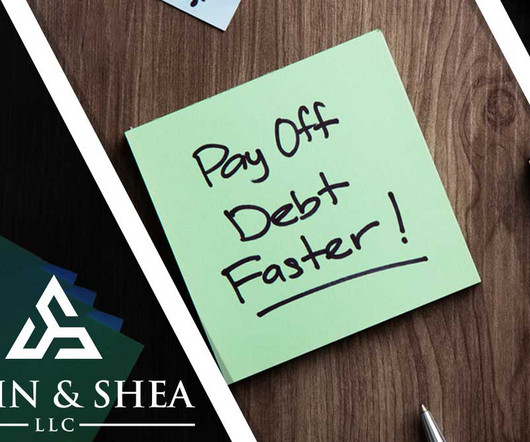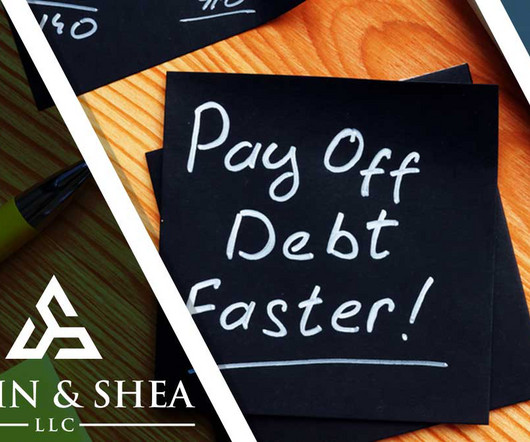Debt Consolidation vs Bankruptcy: Which is Better?
Sawin & Shea
MARCH 6, 2024
Understanding Debt Consolidation Debt consolidation is the process of taking out a brand-new loan and using the money to pay off other loans or debts. Pros & Cons of Debt Consolidation Debt consolidation can be great if you qualify for a loan with a low enough interest rate.










Let's personalize your content